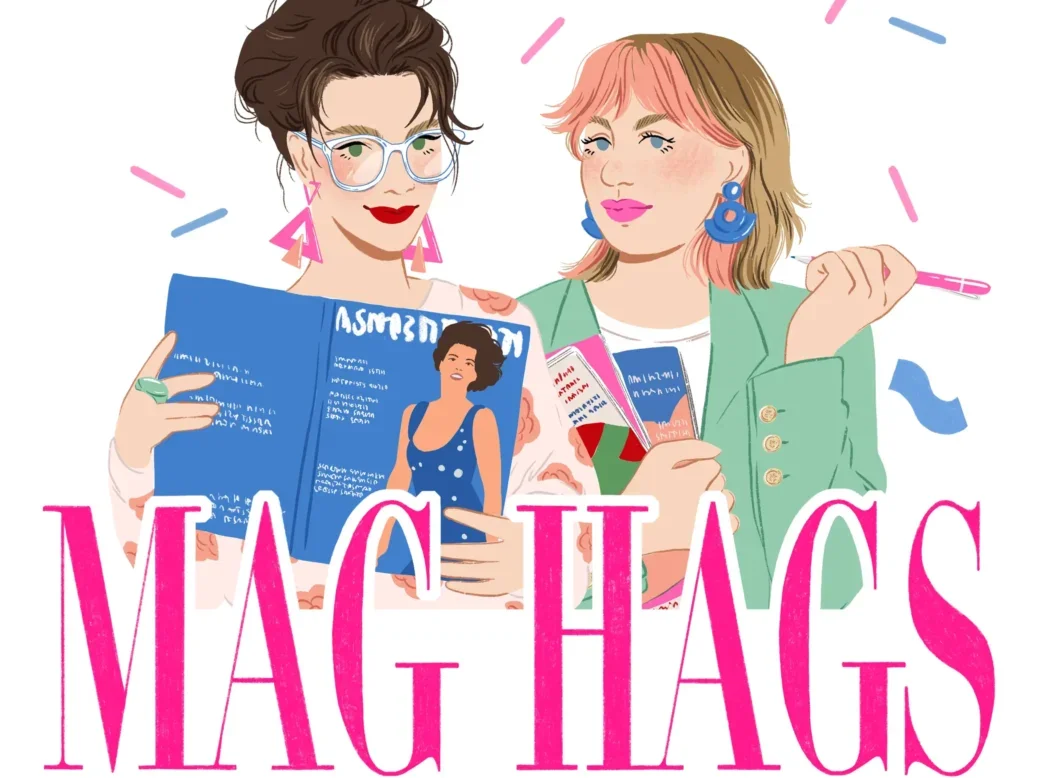
A new podcast called Mag Hags pays homage to 50 years of women’s magazines by examining classic editions of famous brands like Cosmopolitan, Tatler, Woman’s Own and Marie Claire.
Hosts Franki Cookney and Lucy Douglas, both journalists who have worked on magazines, answer Press Gazette’s questions about what they see as a golden era for print magazines running from the 1970s to 1990s. They explain what made magazines great in this period and what current magazine editors could perhaps learn from their forebears.
Q: What is it that made magazines such a big part of female culture?
Lucy: “I think there’s a very historic sense of needing a safe space and a safe way to pass information down between women, down by generations. I think magazines are the 20th century iteration of that.
“Magazines of this time were a really powerful vehicle for informing women about issues like women’s health, sexual freedom, feminist movements, domestic violence and lots of big social issues…
“There’s lots of shame and lots of stigma surrounding these topics and women’s magazines were a safe space to get that information. That information was coming from a context that was speaking to young women in a friendly, entertaining, lighthearted, trustworthy way, but also being authoritative and insightful. “
Franki: “They were doing something that mainstream media at the time was not doing, which is managing to bridge that gap between being really fun and lighthearted and entertaining, tapping into the things that women were enjoying in their lifestyles while also doing serious reporting on issues that affected women.”
What were some of the less good things about magazines in the period you were looking at?
Lucy: “One difference is some of the expectations around relationships. Looking at a 1988 edition of Good Housekeeping there was this idea that you you need to be careful about how many friends you have because they could really get in the way of your marriage. That’s something that feels probably quite unhealthy.”
Franki: “We can’t not talk about the fact that absolutely everybody in these magazines was white. All of the features are very much written for a white audience in a way that does actually feel sort of noticeable. The language that’s used is just assuming a complete racial homogeneity.”
What were some of the good things about magazines in the era you were looking at?
Franki: “There’s a lot of fun being had in these magazines. I mean, we found that the writing is really punchy, really creative, often a lot more irreverent than you get today. In one of our episodes, we looked at an issue of Tatler from 1980. All of the writing in that is just so good. And it’s hard to know where you would find writing like that now.
“Looking at New Woman, the whole tone of that, we just found it so joyful.”
Lucy: “Looking at Marie Claire from 1998 and New Woman from 1997, and most of the titles we looked at, there’s a noticeable lack of moralising in them and that is something we go in for in quite a bit way in 2024.”
Franki: “It’s also giving quite a lot of credit to the reader, isn’t it? Because it’s sort of not laying out, here are all the ethical sides. It’s presenting the story and letting the reader make their own mind up about it, which as a reader in this context feels really refreshing, actually.”
Magazine circulations have slumped in recent years. Is there anything the industry can learn from these golden era editions?
Franki: “I’m not sure if there’s a way to compete with social media now when it comes to sort of lifestyle content. And so maybe the way is to go back to this route of being a bit irreverent and trying something different. Making it fun.
Lucy: “There was an acerbic, irreverent, very funny humour that was in that kind Tina Brown era, Tatler. I think that’s the kind of thing that will get people reading magazines again.”
Email pged@pressgazette.co.uk to point out mistakes, provide story tips or send in a letter for publication on our "Letters Page" blog
